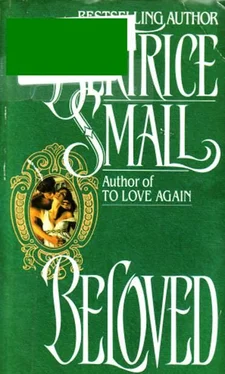Zenobia reached out and, pulling him to her breast, hugged him tightly. "Good night, my lord," she said, her voice strangely tight. He drew away from her and, nodding to Rufus Curius to go, almost ran from the room.
Watching him go, she sighed. He was so young to have this responsibility thrust upon him; yet a boy. Tonight his childhood had ended-or had it? Was it really necessary for Vaba, only twelve, to be laden with such responsibility? Perhaps she could give him a year or two more before she must teach him how to be king. He would be the better for it, she knew.
The council began arriving, staring at first in shocked fascination at the dead body of their king. Only when they had all come did Zenobia give the order that her husband's body be removed and prepared for its funeral. "Sit down," she commanded, and they quickly obeyed her, seeking seats about the dining table. "I am appointing Antonius Porcius to the Council of Ten to replace the king; and Marcus Britainus will have temporary command of Palmyra's legions. Are there are objections?" Her gaze swept them.
"Antonius Porcius has long been a resident of this city," Marius Gracchus said. "Although he was not bom here, he chose to remain upon his retirement. He has married into one of our most distinguished families. I can find no fault with the queen's choice. In the matter of Marcus Britainus, however, I am confused as to why the queen has chosen him over a Palmy ran officer."
"The king trusted him," was the reply, "and so do I. He has had several years of military experience with the Praetorian, and it is precisely because he is a Roman that I have chosen him. Rome trusted my husband, and gave him great powers. With his death I do not want them sending someone from Rome to oversee our armies. Rome will not find any fault in my choice, and we shall be left alone."
"Then it only waits for Marcus Britainus to accept your appointment," Marius Gracchus replied. He looked directly at the Roman, his glance searching and not entirely trusting.
Marcus was totally surprised by Zenobia's decision, and he could see the hostility in many on the Council of Ten. He wasn't sure exactly what it was she was asking him to do. Vaba was far too young to take over his father's command, and Rome was eventually going to send someone out. Obviously she wanted a little time to organize the government. He could aid her without being disloyal to Rome; but more important, he would have constant access to her.
"Marcus Britainus." Her voice was soft as she fixed her wonderful gray eyes on him. "Marcus Britainus, will you accept?"
"Of course, Majesty. I am honored at the faith you have in me."
"It is settled, then," she said, and only Longinus, who knew her best, heard the relief in her voice. "Now we must get to the succession. Those who were with us this evening heard my husband name our eldest son, Vaballathus Septimius, his heir, the next king. The Council of Ten must honor Odenathus's dying request."
"What of the king's elder sons?"
Zenobia froze, her eyes darkening with anger, and she looked at a council member named Quintus Urbicus. "Do you refer to the king's two bastards?" Her voice was icy. "They are both dead." The council gasped. "The eldest, Linos," Zenobia continued, "was responsible for his father's death; the younger was guilty also. They killed the king, Quintus Urbicus, and it was a miracle that they did not kill all of us! There were five women, and ten children here this night. Ten children including Palmyra's rightful heir!"
"Prince Vaballathus is only twelve, my Queen."
"It is true that King Vaballathus is yet young, but he is of the true line of Palmyra."
"This is a dangerous situation," said Macro Cursor, another council member. "A child king is always vulnerable. He cannot be allowed to rule until he is of age. If the king's older sons are dead, and unavailable to us, then the Council of Ten must take over for our boy king." He looked around the table for support, but only Quintus Urbicus seemed in open agreement with him.
Antonius Porcius cleared his throat. "We cannot have ten people ruling Palmyra. It would lead to chaos; and in the end Rome would send another governor. It only remains for us to choose a regent to rule in the king's place until he is of age. What more natural choice can we make than to appoint the queen regent of Palmyra. The king wanted it so."
"The queen!?" The council looked to Zenobia.
"Antonius Porcius is correct." The speaker was Marius Gracchus. "The queen is a perfect choice for regent. Rome will accept her, for she is a known quantity to them, and with a former Praetorian officer in charge of the legion…" He allowed them all to absorb the obvious. "When you think on it, my friends," he continued, "the queen is the only logical choice. She has an excellent grasp of government, and has ruled well in our late king's many absences. Does anyone else wish to put forward another candidate for this post?" His gaze swept the table. "Then I can assume there is no need for us to vote on this, and that the matter is settled. Queen Zenobia will rule in her son's stead until he is of age." Marius Gracchus looked again to the queen, and then sat down.
Zenobia stood and faced them all. "I will rule alone for the next two years," she said bluntly. "My son needs more time to grow. He will attend council meetings only once a month, but of course will be present on all state occasions. My husband's body will lie in state tomorrow, and be buried the following day."
"It will be as the queen has said," Marius Gracchus intoned.
"I thank you all for coming," Zenobia said. "The council is now dismissed, Longinus and Marcus Britainus to remain for a moment. Good night."
No sooner had they gone than Zenobia's face crumbled, and she began to cry. Longinus dismissed the guard and, turning back to her, was not surprised to see his queen held firmly in Marcus Britainus's strong arms. For some minutes she sobbed her grief, and Longinus could hear the Roman's voice softly comforting the woman. What a remarkable creature she was, he thought. Never once in the few hours since Odenathus's death had she allowed herself one moment of weakness. She had been firm and resolute, even ruthless, taking charge of the very dangerous situation. She was amazing!
As her pain abated Zenobia was suddenly aware of the fact that warm arms encircled her; beneath her cheek a hard chest cloaked a heart that beat steadily. To her confused and numbed mind it felt right, and she snuggled deeper into the embrace. She was so tired, so suddenly and terribly tired. Her legs gave way, and as they did she felt herself being lifted up. Marcus Britainus looked to Longinus for aid.
"Follow me," was the reply. "There is a guest bedroom nearby. If we go to the queen's apartments old Bab and all the queen's maidens will flutter and fuss."
"I will stay with her," the Roman said. "If she awakens in a strange place it could frighten her."
Longinus almost laughed aloud at this weakness being attributed to Zenobia. Ah, well, let the Roman have his dream, he thought. "Yes, that would be best, Marcus Britainus," he answered, ushering the man and his burden into a pleasant room reserved for state visitors.
"I will leave you," Longinus said. "I want to see to the young king and his brother." He hurried out.
Marcus carefully laid Zenobia on the bed, drew up a chair, and sat down. For a long time he stared at Zenobia. She was so incredibly beautiful. Her skin! By the gods, it was flawless, perfect! Venus herself could not have had more beautiful skin. Hesitantly, he reached out and touched it, finding it as he had suspected, smooth and soft. Growing bolder, he let his fingers trail down her face, her neck, her shoulder. Reverently, he fondled the rounded shoulder, admiring how marvelously proportioned she was. His hand seemed to move of itself, slipping lower and lower until it moved past the neckline of her violet stola and he cupped a warm, full breast. He almost cried aloud with the pleasurable pain of the act, and then he snatched his hand away as if her skin had been a hot coal.
Читать дальше












